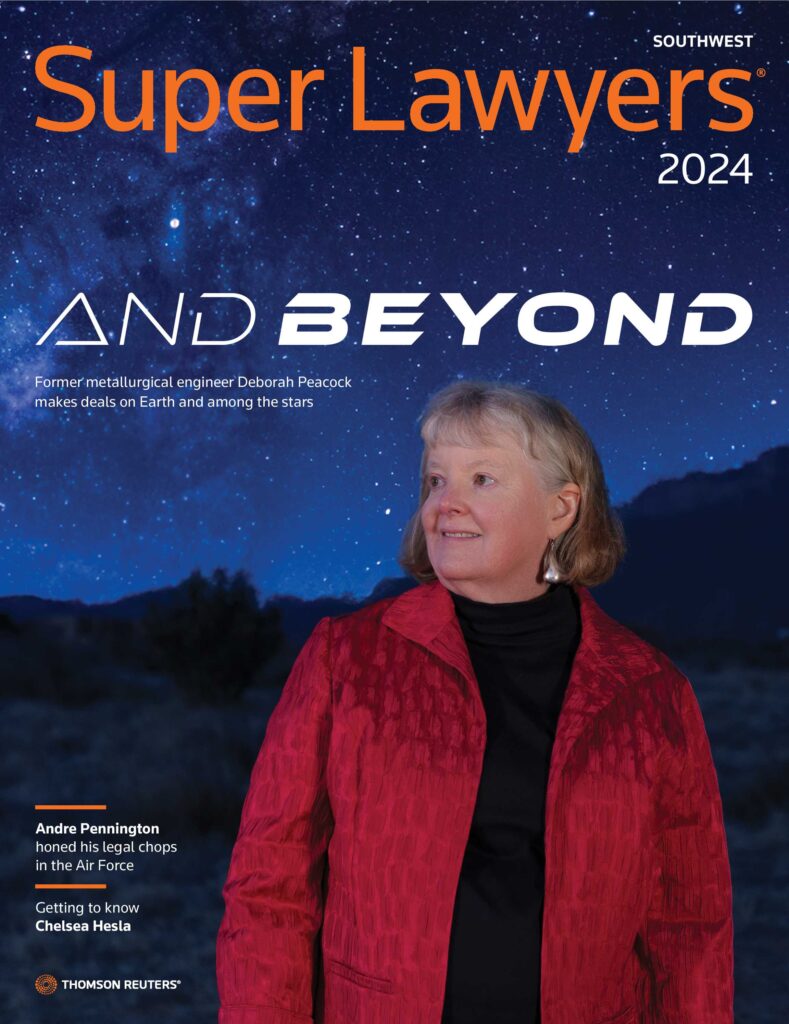NEWS
Congratulations to Thad Spalding who, along with trial counsel Charlie Reed and Tom Herald, successfully defended Allstate’s appeal of a judgment against them, including attorney’s fees, in a UM/UIM case. Allstate challenged virtually everything that the trial court did, including the award of past medical expenses, prejudgment interest, and declaratory judgment act attorney’s fees. The Dallas Court of Appeals rejected every argument. You can read the briefing here and the court’s opinion here.

DP&S is pleased to announce that Aditi Deal has joined our team as an associate in our Houston office.
Prior to joining the firm, Aditi practiced commercial litigation at Locke Lord LLP. While there, Aditi worked on commercial cases at the state and federal level in Texas, Maryland, and Louisiana, and briefed appeals to the Fifth Circuit Court of Appeals, the Court of Special Appeals of Maryland, and numerous intermediate appellate courts.
Aditi graduated from the University of Houston Law Center magna cum laude, where she was a Community Outreach Editor for the Houston Law Review, a member of the Mock Trial Team, and member of the Order of the Barons Honor Society. During law school, Aditi was also a judicial intern for the Honorable David Hittner.
Aditi is admitted to practice in all Texas state courts, as well as the United States District Court for the Southern District of Texas.
Welcome to the firm, Aditi!
Congratulations to Santa Fe partner Caren I. Friedman, who has accepted an invitation to become a Fellow in the American Academy of Appellate Lawyers. AAAL was founded to recognize outstanding appellate lawyers and promote the improvement of appellate advocacy and the administration of the appellate courts. Membership in the Academy is by invitation only. Fellows face stringent membership criteria, undergo rigorous screening, and must be approved by the Academy’s Board. Caren will be inducted as a Fellow at the Academy’s fall meeting in Boston in October. You can read about the Academy here.

This month, DP&S partner Kirk Pittard traveled around Texas on the speaking circuit delivering presentations on Legal Issues Related to Non-Economic Damages: Gregory v. Chohan to the San Antonio Trial Lawyers Association, Effective Use of Appellate Counsel on Your Trial Team to the Corpus Christi Bar Association, and Ethical Issues in Contracting Appellate Counsel to the Appellate Section of the State Bar of Texas.

Congratulations to Santa Fe partner, Caren Friedman, who was named a 2024 Southwest “Super Lawyer” in the appellate practice category. Southwest Super Lawyers magazine covers New Mexico and Arizona. Caren is one of only seven New Mexico appellate practitioners, and the only one from Santa Fe, to be recognized. This is Caren’s 18th consecutive year to be included on this list. You can read the digital edition of Southwest Super Lawyers magazine here.

Houston attorney Lara Hollingsworth was a highlighted speaker at the Texas Trial Lawyers Association’s CLE Seminar on Thursday, February 22, 2024, at the Warwick Melrose Hotel in Dallas. The day-long seminar covered how to tackle 21st Century car wreck cases. Lara provided insight on how plaintiff’s counsel can use motions practice to their advantage.
Congratulations to Santa Fe partners, Caren Friedman, Justin Kaufman, and Roz Bienvenu, who successfully convinced the New Mexico Court of Appeals to affirm the judgment in this probate case involving a dispute over the decedent’s property. At the heart of the dispute was the Estate’s claim of a valid contract that allegedly distributed valuable water rights appurtenant to land near Truchas in Northern New Mexico. The Court of Appeals agreed with DP&S that the district court never adjudicated a supposed claim of promissory estoppel, and the Estate failed to preserve an argument about enforcement of the contract. The Court of Appeals also agreed with arguments advanced by DP&S concerning ownership of the decedent’s personal property, which included antiques and farm and ranch equipment. You can read the Memorandum Opinion here.
Congratulations to Rick Thompson, Valerie Farwell, and trial counsel, Richard Dodd, who convinced Houston’s 14th Court of Appeals to reverse an asbestos MDL summary judgment ruling on causation. The Court of Appeals found there to be a fact issue on direct causation, precluding summary judgment, where there were no other “plausible sources” of asbestos exposure, explaining:
“If reliable expert testimony shows that only exposure to asbestos can cause asbestosis and if Alcoa was the source of all the asbestos to which Carolyn was exposed, then the evidence directly proves that asbestos from Alcoa was a substantial factor in causing Carolyn’s asbestosis. In this situation, whatever the dose or amount of asbestos to which Carolyn was exposed, that dose or amount must have been sufficient to cause asbestosis because only asbestos exposure causes this disease and Alcoa was the source of all the asbestos to which Carolyn was exposed. When proving substantial-factor causation through direct, scientifically reliable proof, it is not necessary to show that the asbestos from Alcoa more than doubled Carolyn’s risk of suffering from asbestosis.”
The case is Burford v. Howmet Aerospace, Inc., No. 14-22-00417-CV, — S.W.3d —, 2024 WL 790285 (Tex. App.—Houston [14th Dist.] Feb. 27, 2024). You can read the opinion here, and you can read articles about the case here (Law360.com) and here (Texas Lawyer).
Congratulations to Dana Levy and trial counsel, Scott Hendler and Grayson McDaniel, who successfully defended a challenge to their nursing administrator and forensic pathology expert reports. In this nursing-home negligence case in which a resident died of hypothermia during Winter Storm Uri, the defendants objected that licensed nursing home administrators and a forensic pathologist were unqualified to provide preliminary expert reports under Chapter 74 because the administrators were not medical providers who treat patients, and the pathologist had never treated seniors. The trial court denied motions to dismiss the case and the court of appeals affirmed, holding that the nursing home administrators were qualified because their expertise spoke to the plaintiff’s core allegation that the nursing home and its executives failed to provide a safe physical environment for residents and that the forensic pathologist did not need to treat patients to offer causation opinions. The case is Ramsay v. Ferguson, No. 07-23-00392-CV, 2024 WL 769537 (Tex. App.—Amarillo Feb. 23, 2024, no pet. h.) (mem. op.). You can read the opinion here.
Congratulations to Shelby White, Thad Spalding, and trial counsel, Daryl Washington, who settled a civil rights case against the City of Arlington and one of its officers for $1.9 million. The case involved the fatal shooting of Tavis Crane by Arlington police officer Craig Roper after Crane was stopped when his toddler threw a candy wrapper out of the car window. The trial court granted summary judgment to Officer Roper on the basis of qualified immunity. On appeal, the Fifth Circuit reversed that judgment, finding fact issues that needed to be decided by a jury as to whether Roper acted used reasonable force, considering–among many other facts–the speed with which Roper resorted to using deadly force.
The City and Officer Roper asked the entire 5th Circuit to rehear the case. That request was denied by a 10-6 vote. The City and Officer Roper then petitioned the U.S. Supreme Court to review the case. After responding, with the help of Kelsi Corkran and her team at the Institute for Constitutional Advocacy and Protection at Georgetown University Law Center, the U.S. Supreme Court denied review on November 14, 2023, paving the way for the resolution of this case.
The case is Crane v. City of Arlington, Tex., 50 F.4th 453 (5th Cir. 2022), reh’g denied, 60 F.4th 976 (5th Cir. 2023), cert. denied sub nom. City of Arlington v. Crane, 144 S. Ct. 342 (2023), and cert. denied sub nom. Roper v. Crane, 144 S. Ct. 342 (2023). You can read a Dallas Morning News article about the case and its resolution here.
